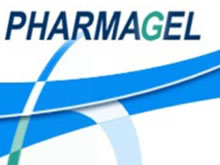
Dictionary of Allergies .. AIDS and Immunology
AIDS and Immunology
Development of immunobased diagnosis and immune based intervention is essential. Most patients with AIDS experience a sharp fall in CD4 T cells after 1 year, followed by a plateau period and then a further drop, at which time opportunistic infection appear. Not all patients follow this course, but in all cases T cell activation is a major factor and the T cell number is prognostic. Two serum markers can now be used to predict AIDS probability and prognosis, in HIV-positive individuals before the onset of symptoms. These two markers (neopterin and β-2-microglobulin) reflect immune activation and can be used to monitor therapy. Immune based therapy for AIDS so far has included modulators, cytokines and receptor-directed antibody. Antibody therapy, CD8 T cell enrichment and vaccines are also being tested. The major difficulty with all these therapies is that they work only while some functioning of the immune system still remains. Immunological approaches to this disease are a challenge to all of us.
References
Fahey, J.L.: Immunology and AIDS. ICACI XIVth Congress, Kyoto, Japan, October 1991.
Γκέλης Ν.Δ. - Λεξικό Αλλεργίας - Εκδόσεις ΒΕΛΛΕΡOΦΟΝΤΗΣ - Κόρινθος 2013
Gelis Ν.D. - Dictionary of Allergies - VELLEROFONTIS Publications - Corinth 2013




